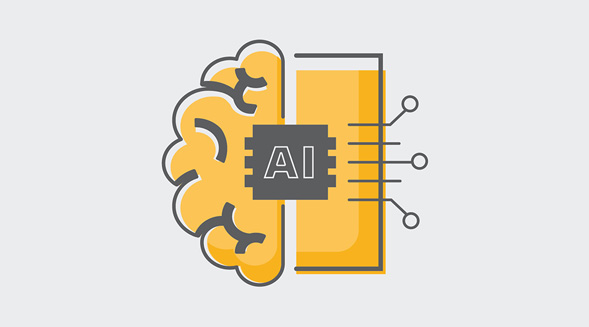Decoding the Future: The Importance of AI Governance in Software Development

Over the past two years, the use of artificial intelligence (AI) has surged across the world, particularly in the technology industry. As AI continues to develop and companies adopt its capabilities, it’s critical to ensure this technology is treated with the same due diligence as any other code development tool. This could mean developing an AI policy or standard that outlines acceptable business usage as well as governance to ensure adherence to the policy.
But what does a governance policy mean? As currently defined, an Artificial Intelligence Software Governance Framework (AISGF) is the structured process of overseeing the control and direction of computer science programs created with simulated human intelligence.
The need for AI governance
While companies have the ability to create their own AISGF, the United States government has been working to provide guidance through policies like the National AI Initiative Act of 2020, the “Artificial Intelligence Risk Management Framework” published by the National Institute of Standards and Technology and Executive Order 13859: Maintaining American Leadership in Artificial Intelligence. The imperative to establish guardrails for AI use continues to grow as billions of dollars are being invested in existing companies and startups to bring AI further into the mainstream. In fact, a 2023 GitHub survey showed 92% of programmers polled already use AI-powered coding assistants.
How AI will transform software engineering
Odds are your company already uses AI – if not directly, then indirectly – and will continue to expand. According to Jerry Sayre, chief software engineer officer at Mutual of Omaha, AI will be used in several areas of the software engineering field, starting with the work that has specific and unambiguous criteria in the form of business rules and constraints.
Over the next five years, the impact of large language models (LLMs) on software engineering has the potential to transform the following:
- Low-code/no-code revolution: LLMs will empower non-technical users to create software applications with minimal coding expertise, accelerating the adoption of low-code/no-code platforms.
- Software archeology, migration and maintenance: LLMs will assist in the maintenance of legacy software by providing insights into codebase understanding, updates and optimization.
- Code review automation: LLMs will assist in code reviews, ensuring adherence to best practices, security standards and coding conventions. This will help maintain code quality across development teams.
- Bug detection and resolution: LLMs will play a pivotal role in identifying and rectifying software bugs. They’ll analyze code, predict potential issues and recommend solutions, contributing to enhanced software reliability.
- Efficient documentation: The creation of comprehensive and up-to-date documentation will become more efficient with LLMs. These models will assist in generating documentation, explaining code functionality and automatically updating it as the codebase evolves.
- Enhanced code generation: LLMs will revolutionize code generation by automating a substantial portion of the software development process. Developers will leverage LLMs to quickly prototype, generate boilerplate code and even assist in debugging, thereby significantly expediting software development cycles.
- Continuous integration (CI)/continuous delivery (CD): LLMs will streamline the CI/CD pipeline by automating code reviews, testing and deployment processes. This will lead to faster and more reliable software releases.
The future of AI usage
Based on the list above, it’s clear the use of AI is already quite prevalent. Treating AI like any other development tool and creating governance around it will help reduce risks to the company using it. Documenting the build of materials when using AI to generate code and noting what the code is doing will help address any possible legal concerns once the government releases regulations for using AI.
In the end, remember to know your code. Don’t let your code be marred by alchemy, smoke or fuzzy math.